Among all the tourist attractions of Cyprus, there is always something to discover. It is one of the most unexplored islands in the entire Mediterranean, despite its status as a privileged natural enclave. Cyprus is therefore one of the best and most diverse destinations to discover this summer for those looking for an experience that combines beach, mountains, entertainment, culture and gastronomy. Cyprus is a complete all-in-one. In addition to its heavenly beaches, its gastronomy and all its heritage, there are many stories, anecdotes and curiosities that make the island a place full of charm. Here are ten, for example, some of those that are of greatest interest to those who dare to visit Cyprus:
MUSAN, the first underwater museum in the Mediterranean
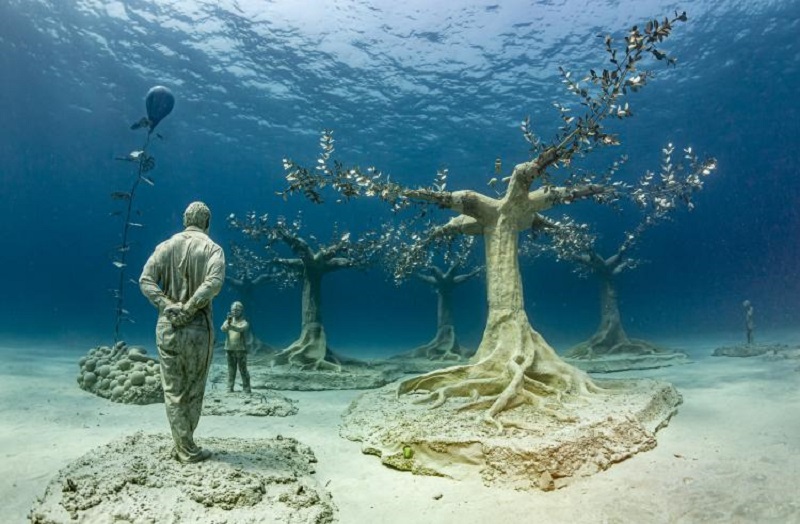
South of Famagusta, 200 meters off the coast of the municipality of Ayia Napa, is the first underwater museum in the Mediterranean. Recently opened - in July 2020 - the original idea of the Underwater Sculpture Museum, also known as MUSAN, comes from the British artist Jason deCaires Taylor, who has already opened other museums in different parts of the world, such as in Lanzarote or the Antilles. In fact, DeCaires is world famous for his underwater museums and exhibits. At a depth of eight to ten meters, MUSAN has more than 90 underwater sculptures that are also respectful of the environment and are made of PH neutral materials, so that on the one hand they have the least possible impact, and on the other, the area ultimately becomes a refuge for marine fauna.
Open Air Sculpture Museum in Ayia Napa

In addition to the underwater statues, the coastal town of Ayia Napa also has a sculpture museum, but in this case, it is open-air. Established in 2014 and located near Cape Greco, the Ayia Napa Sculpture Park gathers hundreds of sculptures created by local, Greek and international artists on an area of over two hectares, with the aim of promoting Cypriot culture. On a steep hill full of rocks, the descent to the sea offers a calm and pleasant panorama for tourists who dare to visit the park, which, in addition, is open all day and admission is free.
Flamingo in Larnaca
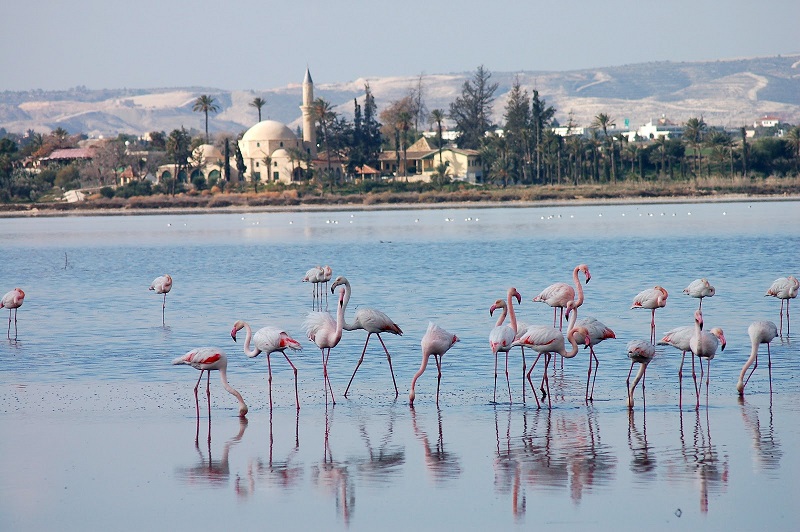
It’s as simple as it is impressive: visiting flamingos in certain areas of Cyprus is becoming more and more popular on the island. In fact, the country is a mandatory stop for thousands of birds that migrate from Africa to Europe each year, and the flamingos spend part of the winter in a sanctuary on this Mediterranean island, where they can be seen from November to December.
Cyprus, the island of Aphrodite
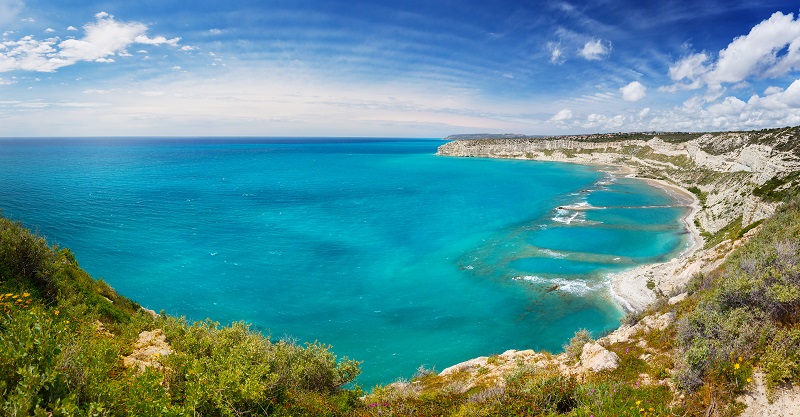
The entire island is covered with a mythological blanket, bearing, in particular, the name of Aphrodite. Thus, Cyprus is dotted with many places whose history is connected with the Greek goddess of beauty and love, whose birth determined the very emergence of the island. The Greeks used mythology in this way to explain natural phenomena that they could not explain otherwise.
Nicosia, the last divided capital in the world
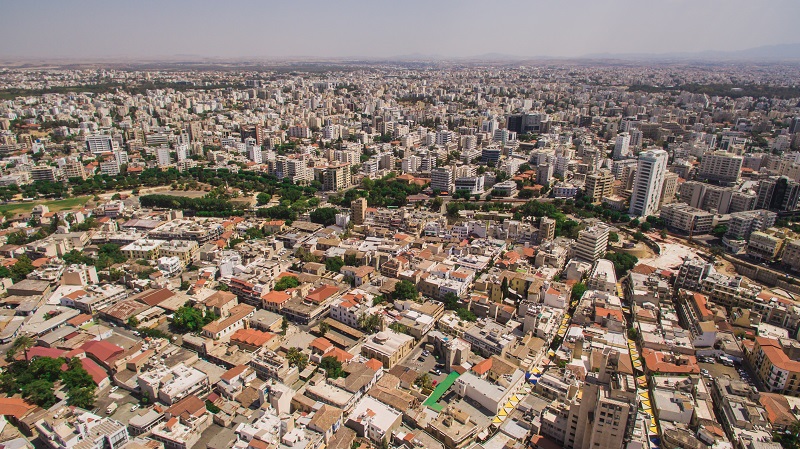
With a population of around 300,000, Nicosia, known to Cypriots as Lefkosia, is not only the largest city and capital of Cyprus, but also one of its most interesting. Its own position as the world’s last divided capital has become one of its main claims, and all this in a place where the fusion of cultures and their legacies has created a city rich in nuances, interests and tastes.
Cyprus is full of cats
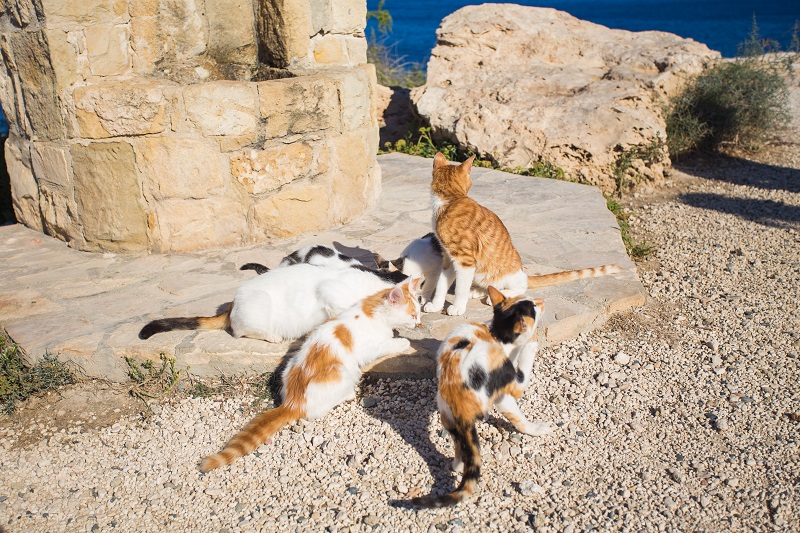
Cyprus is known to many as the island of cats. There is evidence that these cats have been domesticated for thousands of years. Legend has it that St. Helena of Constantinople, the empress of the Roman Empire – other legends say she was Cleopatra – sent ships full of cats to the Mediterranean island to combat the snakes that were overpopulating the region at the time. The legacy of this story is such that today, it is estimated that there are hundreds of thousands of cats in Cyprus, roaming freely throughout the island and being a part of everyday Cypriot life. It is not unusual to see them even at the doors of the island’s most luxurious hotels.
One of the countries with the largest number of blue flags in the world

Together with other countries such as Portugal, Israel or Spain, Cyprus can boast of being one of the countries with the highest density of Blue Flag beaches per inhabitant – Cyprus has a population of 960,000. This award is given annually by the European Foundation for Environmental Education, which bases its choice on criteria such as safety, water quality, conservation, accessibility or cleanliness. Some of these beaches are also the most popular, which shows that their level of visitation does not prevent them from preserving the benefits of their nature. One of them is, without going into details, Nissi Beach in Ayia Napa, with turquoise and crystal clear waters that reveal a whole underwater world, which over time has become the most famous beach on the island.
Painted churches of Troodos
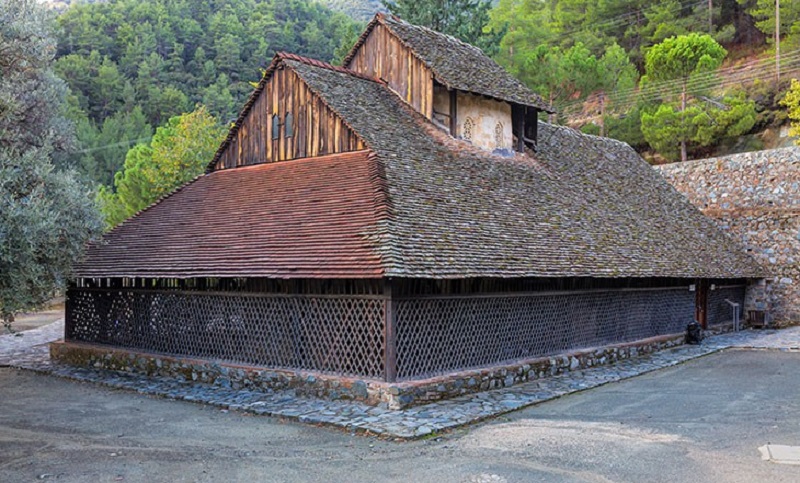
Cyprus has one of the largest concentrations of Byzantine churches in the world, built between the 11th and 15th centuries during the Byzantine rule over the island. They are known as the Ten Painted Churches of Troodos, which were inscribed on the UNESCO World Heritage List between 1985 and 2001 and boast some of the most representative frescoes and murals of Byzantine culture. They are divided between small towns and villages along the Troodos mountain range, where there are organized walking and hiking trails to discover the best of Cyprus's interior.
British Heritage of Cyprus
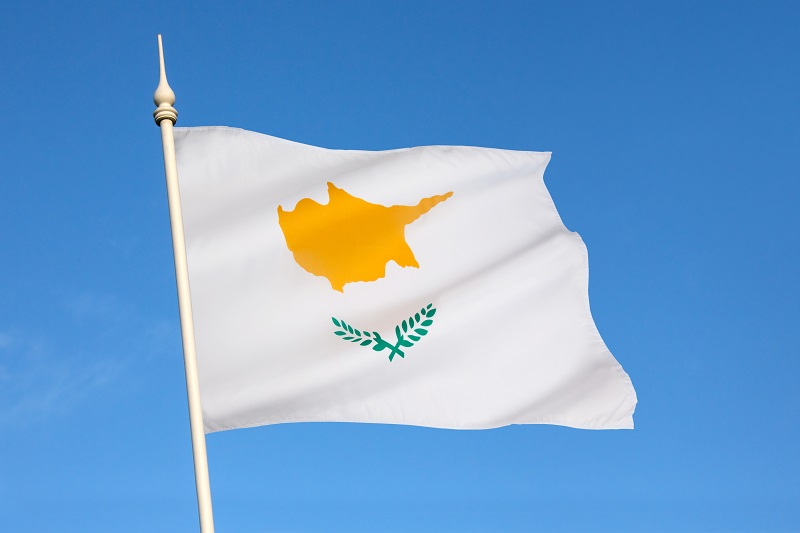
Greeks, Ottomans, Romans, Venetians… There are many different empires and dominions that have left their mark on the island over the centuries, which can still be seen on the streets of its cities. More recently, Cyprus was also under the British Empire, from 1878 to 1960, first as a protectorate and then as a colony. There are many remnants of Cyprus’ British past that are also important for any tourist intending to visit the island to know, such as the fact that they drive on the left, that forks have three prongs, and that almost everyone speaks English.
Salad and potatoes as the basis of his gastronomy

Cypriot gastronomy always starts with the same thing: all tables, both lunch and dinner, are accompanied by a salad, as in Spain with bread or in some Asian countries with rice. Simpler or more complete, all their salad mixes are equally good, although not all of them are equally healthy. Likewise, many dishes are also usually accompanied by chips, which are not only a high-quality product on the Mediterranean island, an important part of its economy is based on this crop, but also one of the most exported to the international market.




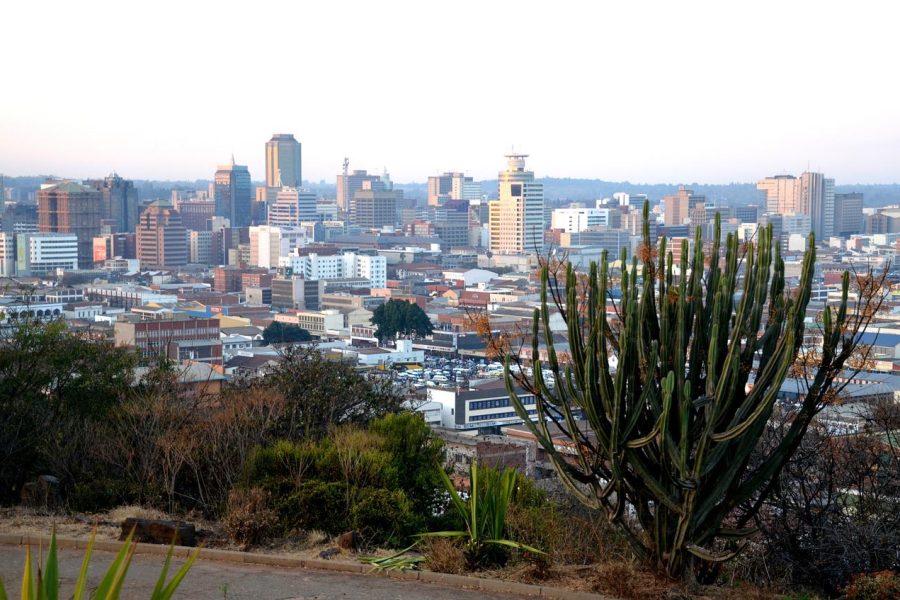
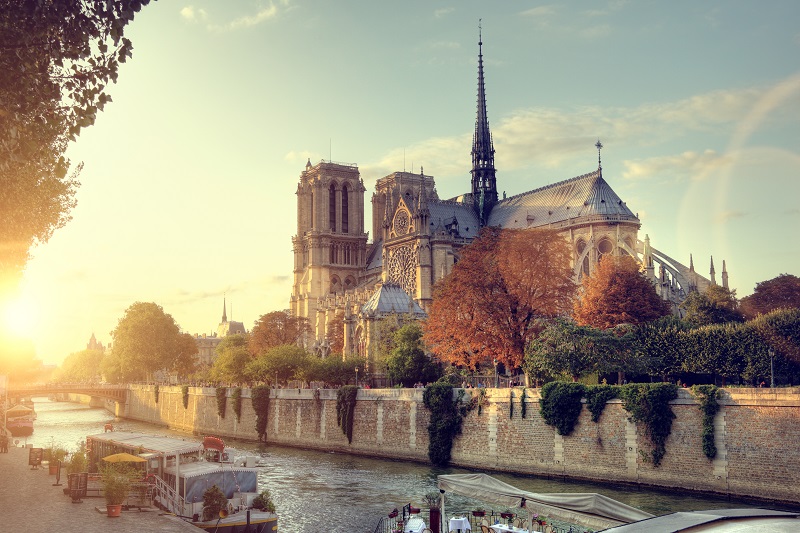
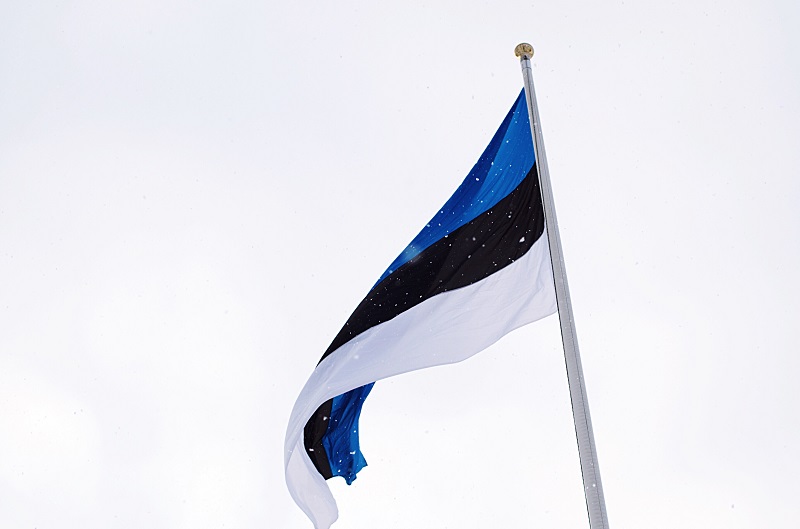




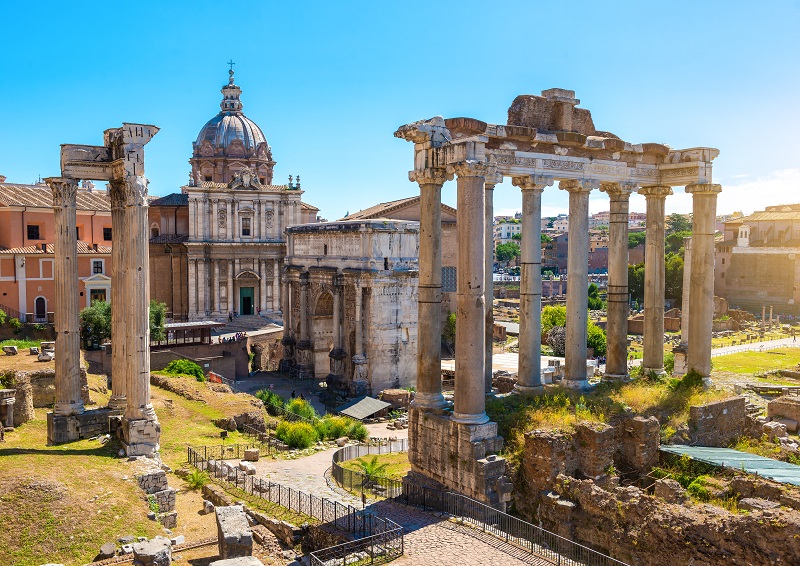

Оставить Комментарий